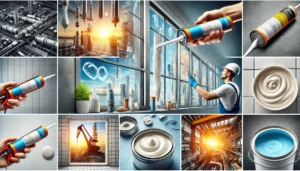MTCs are indispensable in sectors in which quality assurance, compliance, and traceability of materials is of great importance. These certificates confirm the properties and characteristics of a material in such a way that standards set out during the acquisition are able to be fulfilled. Among the different types of MTCs, Type 3.1 and Type 3.2 MTC are the most common. Their main distinguishing aspect is the degree of inspection and verification done after the certification process.
What is a MTC?
A Material Test Certificate Template is an ‘official’ document that each material supplier or manufacturer issues at the time of purchasing the materials and is also known as mill certificate. It confirms that the material has passed a number of tests and, as a result, meets the required specifications concerning chemical composition, mechanical properties, and other key parameters. This certificate allows to prove that the relevant standards have been observed and gives guarantees to the materials purchaser that the material meets the intended purpose.
Type 3.1 Material Test Certificate
The Material Test Certificate type 3.1 is Mainly used for certification of steel products and supplies, This certificate can be obtained from the manufacturer and is based on MTC in which the test and inspection of the product used in the processing took place. The Manufacturer in a way utilizes this service department in part separate from the manufacturing department.
The 3.1 certificate guarantees the requirements indicated in the document are the criteria met by the material, which may include, but not be limited to, the chemical makeup, the physical characteristics, and measurements. It is however noted that since inspection is done by the manufacturer, the trust that can be exercised is at the medium level.
This type of certificate is relevant for use by applications where the standard quality control is enough and the material does not have to be verified by outside sources. It gives sound evidence but it may not be adequate for use in critical areas where the level of assurance required is high.
Type 3.2 Material Test Certificate
For applications where they require a high level of confidence, then use the Type 3.2 Material Test Certificate. This certificate is concerned with the involvement of an independent third party inspection agency, who could be the one contracted by the buyer or an entirely independent body.
Apart from what the manufacturer does during the normal in house inspection, other aspects are done by a third party agency like other checks, verification and testing to ensure the standards required are met. The third party may also look into how certain aspects of manufacturing are done, carry out some sampling and be present in a number of critical tests.
Using a third party inspection agency provides an added level of rigor and eliminates any potential conflict of interest. This detailed assessment demonstrates that the material meets all stated requirements thus making the 3.2 certificate credible and suitable for critical applications.
What Is The Difference Between 3.1 And 3.2 MTCs
The inspection methodology and the confidence levels are the major aspects that distinguish between 3.1 and 3.2 certificates.
Inspecting Authority:
A Type 3.1 certificate is issued where the internal inspection department of the manufacturer inspects and clears the inspection while being separated from the manufacturing process but remaining within the organization.
A Type 3.2 Certificate involves a Third party inspecting agency guaranteeing complete independence.
Level Of Trust:
Type 3.1 is trustworthy up to a medium level with the verification done inside the manufacturers’ site.
A Type 3.2 certificate is rated high in terms of trust and confidence because external verification and more thorough checks are done.
Range of Usage for Application:
A Type 3.1 certificate is intended for standard applications that require internal inspection.
A Type 3.2 certificate is widely used for critical applications where there is no space for the material to fail for example in the oil and gas, aerospace or even the power generation sectors.
When to Opt for Type 3.1 or 3.2 Certificates
The selection of certificates of type: 3.1 and 3.2, is based on the application and criticality of the project.
Muted Certificates of Type 3.1 are appropriate to use with minor requirements as regard the application of the material where the only requirement is an internal inspection by the manufacturer, such materials include construction materials and even simple machinery and basic industries materials.
Type 3.2 certificates are a must in high-end or highly sensitive situations where quality and reliability of the material are the issues in question, for instance, the type 3.2 certification requirement is commonplace in the oil and gas industry, chemical processing industry, and even the aerospace industry, as it helps solve the problems of material integrity failures that arise from strict requirements in most material standards.
Summary
Type 3.1 and Type 3.2 Material Test Certificates both have important tasks in material quality assurance and verification preservation. The difference is precisely the level of trust each type offers with Type 3.1 offering a medium level of trust completely relying on internal inspection while Type 2 provides a higher level of assurance certificate through the audit of independent third party sources. The differences between these two are very important to understand since they play a decisive role during the selection process in relation to the specific scope of your project.
At Induskart, we supply materials supported by full certification across all Occupations. Our material solutions range from Type 3.1 certification for regular applications to Type 3.2 certification for those functional requirements that are more critical.










